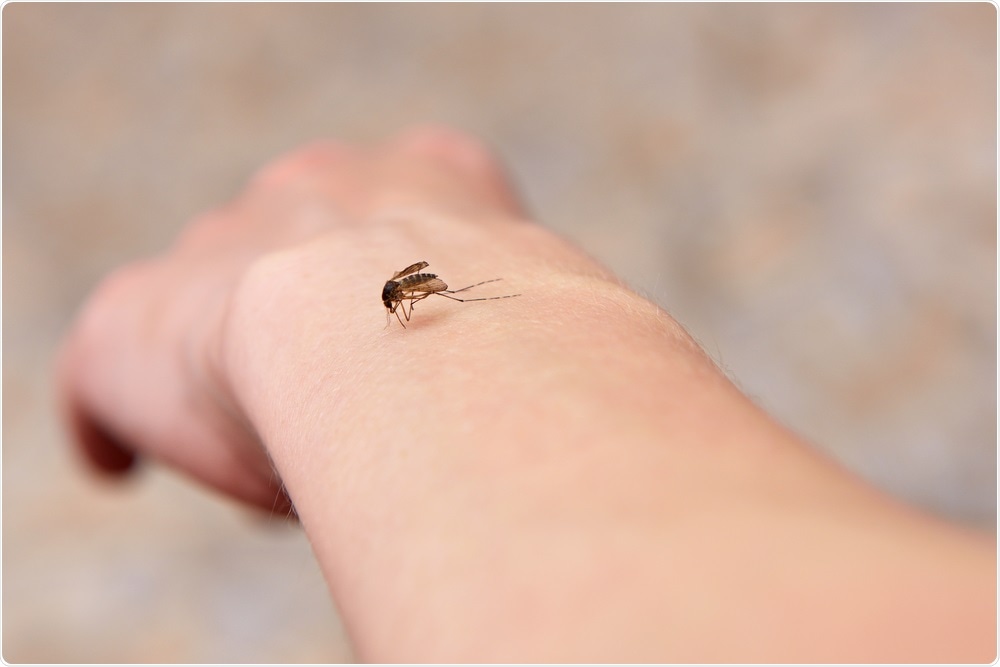Researchers presenting at the European Congress of Clinical Microbiology & Infectious Diseases (ECCMID), which is currently taking place in Amsterdam, have warned that vector-borne diseases are on the rise and threatening to spread into many parts of Europe.
 Dmitrii Pridannikov | Shutterstock
Dmitrii Pridannikov | Shutterstock
Global warming and international travel are two of the factors expanding the geographical range of diseases such as dengue fever, tick-borne encephalitis and leishmaniasis, which are set to spread across much of Europe over the next few decades.
The researchers said that even high-altitude regions including part of northern Europe are at risk, if action is not taken to implement preventive measures such as increasing surveillance and monitoring precursors to outbreaks.
The stark reality is that longer hot seasons will enlarge the seasonal window for the potential spread of vector-borne diseases and favor larger outbreaks. We must be prepared to deal with these tropical infections.”
Dr. Giovanni Rezza, Istituto Superiore di Sanita in Rome
Professor Jan Semenza from the European Centre for Disease Prevention and Control in Sweden says climate change is not the only factor driving the expansion. Many problems including urbanization, globalization and socio-economic development all need to be addressed to restrict the spread of the diseases.
However, the researchers warn that the complicated interplay between all of these factors will make it difficult to project the future burden of disease.
The Mediterranean is now a 'part-time tropical region'
Changing weather patterns have enabled the disease-carrying insects to proliferate, adapt to different seasons and to move into new areas of Europe. Over the last decade, cases of Dengue fever have been seen in France, West Nile Fever in Southeast Europe and malaria in Greece. Outbreaks of the incurable chikungunya virus have also been reported in both Italy and France.
Alarmingly, this may only be the tip of the iceberg, say the researchers:
Mediterranean Europe is now a part-time tropical region, where competent vectors like the Tiger mosquito are already established.”
Previously, dengue, which is spread by the Asian tiger mosquito (Aedes albopictus) has mainly been confined to tropical and subtropical regions because its eggs and larvae cannot survive in cold temperatures and the insects cannot live long enough to transmit the disease to humans.
However, longer, hotter and wetter seasons could provide ideal conditions for the insects to breed and spread across many parts of Europe within decades.
Scandinavia at greatest risk
European climate already provides favorable conditions for the spread of tick-borne encephalitis, with a 400% reported a rise in cases over the past 30 years.
Longer seasons, warmer winters and hotter summers could make these conditions even more suitable for ticks; climate change models suggest that by 2040−2060, the tick habitat could grow by almost 4%, with Scandinavia thought to be at the greatest risk.
Experts on the spread of tropical diseases are calling for more action to be taken to monitor the threat so that regions can be better prepared for warding off outbreaks.
Semenza says that given the ongoing spread of invasive mosquitoes and other vectors across Europe, “we must anticipate outbreaks and move to intervene early.”
Public health agencies need to improve surveillance, for example through early warning systems, increase awareness of the potential risks among healthcare workers and the general public, as well as adopt innovative control strategies such as community interventions."
What steps can you take to protect yourself this summer?
Basic steps, including the consumption of clean water, washing hands before handling food and good hygiene practices can help to reduce the likelihood of infection. In addition, using insect repellents and staying away from stagnant pools of water where mosquitoes are likely to breed, may also help. In the future, vaccination may be needed to prevent the spread of these diseases.